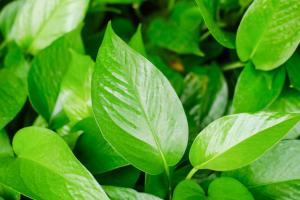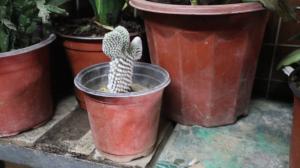Introduction
Planting under a black walnut tree can be a challenge, as the tree produces a toxic chemical called juglone that can harm or even kill other plants. However, with careful considerations and planning, there are some plants that can thrive in the presence of a black walnut tree.
Plants to Avoid
Before discussing what plants to grow under a black walnut tree, it is important to note what plants to avoid. Plants that are highly sensitive to juglone include tomatoes, peppers, potatoes, blueberries, azaleas, rhododendrons, and most fruit trees.
Plants That Can Tolerate Juglone
Despite the challenge of juglone toxicity, there are some plants that can tolerate the presence of black walnut trees. Some of these include:
Eastern Redbud
Serviceberry
Blackhaw Viburnum
Pawpaw
St. John's Wort
Daylily
Iris
These plants have developed natural resistance or tolerance to juglone, making them able to survive and even thrive under a black walnut tree.
Companion Plants
In addition to the above-listed plants, there are some plants that can be companion plants to black walnuts. These plants do not necessarily tolerate juglone, but instead, they help to improve soil quality and provide other benefits to the surrounding area. Some examples of companion plants include:
Comfrey
Clover
Yarrow
Alfalfa
Chives
These plants have deep roots that help to break up the soil and draw nutrients up from deep within the ground. They also attract beneficial insects, such as bees and butterflies, which can help to pollinate nearby crops.
Care Tips
If you decide to plant under a black walnut tree, there are a few care tips to keep in mind. First, be sure to plant your chosen plants as far away from the trunk of the tree as possible, as the highest concentration of juglone is found close to the tree. Second, be sure to water and fertilize your plants regularly, as they will likely have to compete with the tree for nutrients. Finally, keep an eye out for any signs of juglone poisoning, such as yellowing leaves or stunted growth, and remove any affected plants immediately.
Conclusion
Planting under a black walnut tree requires careful considerations and planning, but it is possible to successfully grow some plants in the presence of this tree. By choosing plants that tolerate juglone or serve as companion plants and following proper care tips, you can create a beautiful and thriving garden in the shadow of a black walnut tree.

 how many times do yo...
how many times do yo... how many planted tre...
how many planted tre... how many pine trees ...
how many pine trees ... how many pecan trees...
how many pecan trees... how many plants comp...
how many plants comp... how many plants can ...
how many plants can ... how many plants and ...
how many plants and ... how many pepper plan...
how many pepper plan...































